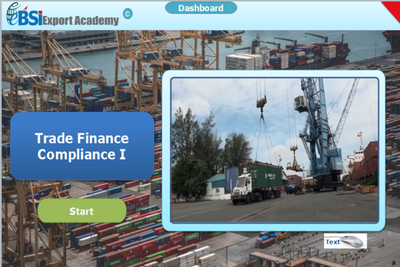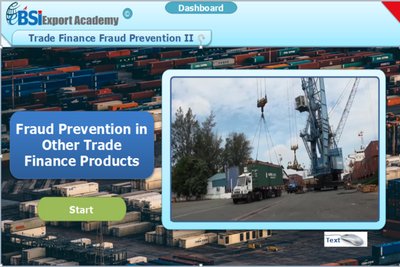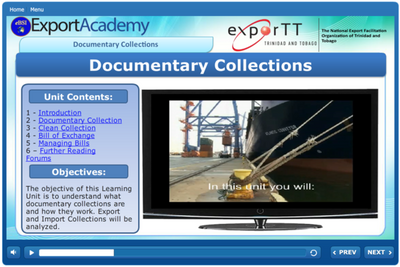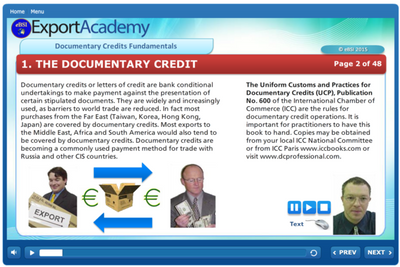Financing Options for Exporters – Nigerian Perspective

Nigeria is an emerging economy with high growth potential. Unfortunately, most of it remains untapped due to many exportable commodities being neglected, as the federal government’s main focus is the exploration and exportation of crude oil. In addition, the government and financial institutions have so far given little or no attention to developing commodity export in terms of policy implementation and export financing, respectively.
There is no doubt that Nigeria is capable of increasing her current levels Ayemiboof commodity production. The country is among the top ten in the export of commodities worldwide, despite the fact that nearly all Nigerian commodity exports are mostly cultivated by small scale farmers. For example, n Chemonics International Inc.’s 2002 report, Overview of the Nigerian Sesame Industry, Nigeria is listed as the seventhlargest exporter of sesame seeds in the world. Thus, it is proposed that exporters should be financed in order to increase the demand for several Nigerian commodities, which will in turn raise the return on investment (ROI) of farmers. The bigger the ROI of the farmers, the more they will be encouraged to cultivate on a larger scale.
New entrants will also be enticed to join, and Nigeria’s annual production will ultimately grow as a result.
The scope of the proposed financial model for small scale exporters is as follows:
- Sourcing of export order from commodity importers abroad
- Commodity sourcing, quality control and warehousing
- Post-shipment financing and export credit insurance
Numbers 1 and 2 should be monitored by the bank in order to reduce performance risk on the part of the exporter and minimize non-payment risk due to the poor quality of exported items.

Post-shipment financing and export credit insurance
The average small scale Nigerian exporter uses open account or documentary collection as mode of payment and has to wait for at least 14-30 days from the date of shipment to the date of receipt of the export proceeds from the buyer. Post-shipment financing, which finances exported goods from the date of shipment to the date of receipt of the export proceeds, aims to provide small scale exporters with the working capital needed to minimize the cash constraints resulting from the extended waiting period. Since the waiting time depends on several factors, the need for post-shipment finance to reinforce the exporter’s financial position also varies accordingly. Post-shipment finance can take various forms but mainly involves factoring or discounting of receivables.
Export factoring is a complete financial package that combines export working capital financing, foreign accounts receivable bookkeeping, nigeria-map credit protection, and collection services. A factoring house or factor is a bank or specialized financial establishment that purchases invoices or accounts receivables. The factor buys the exporter’s short-term foreign accounts receivables at a discount, usually without recourse, and assumes the risk on the ability of the foreign buyer to pay. It also handles collections on the receivables. The risk of non-payment by foreign buyers is virtually eliminated, allowing exporters to offer open accounts and documentary collection payment terms, improve liquidity position, and increase competitiveness in the international marketplace.
Export credit insurance
 The purpose of export credit insurance is to provide offshore protection to exporters of goods and services who sell their products on credit terms. Exporters are insured against losses arising from various risks, either commercial or political. Export credit insurance gives exporters a significant degree of financial security, enabling companies to take on bolder export policies by accepting new purchasers and venturing into new overseas markets with fewer risks. Export Credit Insurance in Nigeria is available through the Nigerian Export Import Bank through their Export Credit Insurance Facility (ECIF). The objectives of the facility are:
The purpose of export credit insurance is to provide offshore protection to exporters of goods and services who sell their products on credit terms. Exporters are insured against losses arising from various risks, either commercial or political. Export credit insurance gives exporters a significant degree of financial security, enabling companies to take on bolder export policies by accepting new purchasers and venturing into new overseas markets with fewer risks. Export Credit Insurance in Nigeria is available through the Nigerian Export Import Bank through their Export Credit Insurance Facility (ECIF). The objectives of the facility are:
- To encourage exporters to diversify their export markets without fear of the risks in inherent in dealing with new buyers
- To attract new enterprises into export business
- To encourage exporters to extend credit terms to their buyers in order to enhance their competitiveness in the international markets
Further information on Export Credit Insurance in Nigeria can be obtained from the Nigerian Export Import Bank through their website at
http://www.neximbank.com.ng/export_credit_
insurance_facility.php
ECIF Brochure ECIF Guideline
Nexim’s Main Website covering all the supports available to Nigerian Exporters can be found at:
http://www.neximbank.com.ng
Documents to the buyer’s bank with the instructions for documentary collection. The buyer’s bank will transfer the funds to the exporter’s bank, and the bank will then liquidate the exporter’s facility and credit to the exporter’s account.
The following exports are eligible for cover under the facility.
- Export of goods wholly or partly manufactured in Nigeria
- Export of commodities, which are exportable under the laws of Nigeria.
- Such export must be supported by written contracts of supply concluded on credit terms of not more than 180 days.
- Export of services.
- Two types of cover are provided under the facility
- Pre-shipment cover
- Post-shipment cover In most cases, one policy shall be issued to cover both pre- and post shipment risks while pre-shipment policy alone shall be granted on exceptional cases.
The risks covered under both pre-shipment and post-shipment policies are stated below:
Pre-shipment risks
- Insolvency of the buyer immediately before shipment is undertaken or other events that make it inadvisable to export,
- Cancellation of export license which was valid at the time production commenced,
- Imposition of restriction on the export of goods not subject to license at the time production commenced.
Post-shipment risks
a) Commercial Risks:
- Insolvency of the buyer
- Protracted default by the buyer
- Buyer’s refusal to accept the goods dispatched which conform to contract specifications.
b) Political /Economic Risks
- A general moratorium on payment decreed by the government of the buyer’s country.
- Any other measures or decisions of the government of a foreign country, which prevent performance of the contract.
- Political events,
- economic difficulties, legislative or administrative measures arising outside Nigeria that prevent or delay the transfer of payments due under the contract.
- War, revolution and civil disturbance in the country of the buyer, which prevents or delays the transfer of payments due under the contract.
- Default by a government buyer.
- Any other causes of loss arising outside Nigeria, which is beyond the exporter’s and buyer’s control.






